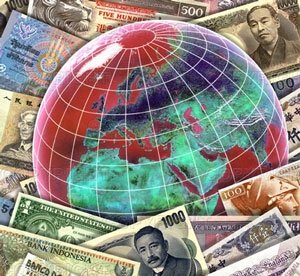PARIS 1919: JAPANESE RACIAL EQUALITY PROPOSAL REBUFFED AT VERSAILLES
April 1, 2010 at 2:39 am | Posted in Asia, Globalization, History, World-system, Zionism | Leave a commentThe Racial Equality Proposal was a Japanese proposal for racial equality at the Paris Peace Conference.
After the end of seclusion, Japan suffered unequal treaties and demanded equal status with the Powers. In this context, the Japanese delegation to the Paris peace conference proposed the “racial equality clause” in the Covenant of the League of Nations. The first draft was presented to the League of Nations Commission on 13 February as an amendment to Article 21:
The equality of nations being a basic principle of the League of Nations, the High Contracting Parties agree to accord as soon as possible to all alien nationals of states, members of the League, equal and just treatment in every respect making no distinction, either in law or in fact, on account of their race or nationality.
It should be noted that the Japanese delegation did not realize the full ramifications of their proposal, and its adoption would have challenged the established norms of the (Western dominated) international system of the day, as it involved the colonial subjugation of non-white peoples. In the impression of the Japanese delegation, they were only asking for League of Nations to accept the equality of Japanese nationals; however, a universalist meaning and implication of the proposal became attached to it within the delegation, which drove its contentiousness at the conference.[1]
Nobuaki Makino announced at a press conference
We are not too proud to fight but we are too proud to accept a place of admitted inferiority in dealing with one or more of the associated nations. We want nothing but simple justice.[2]
On April 11, 1919, the commission held a final session.[3] Makino stated the Japanese plea for human rights and racial equality.[4] British representative Robert Cecil spoke for the British Empire and addressed opposition to the proposal.[5] Italian Prime Minister Vittorio Orlando spoke in favor of the statement on human right.[6] French Senator Léon Bourgeois urged adoption and stated that it would be impossible to reject this proposal that embodied “an indisputable principle of justice”.[7]
The proposal received a majority vote on the day.[3] 11 out of the 17 delegates present voted in favor to its amendment to the charter, and no negative vote was taken. The votes for the amendment tallied thus:
· Japan (2) Yes
· France (2) Yes
· Italy (2) Yes
· Brazil (1) Yes
· China (1) Yes
· Greece (1) Yes
· Serbia (1) Yes
· Czechoslovakia (1) Yes
Total: 11 Yes
· British Empire (2) – Not Registered
· United States (2) – Not Registered
· Portugal (1) – Not Registered
· Romania (1) – Not Registered
Prime Minister Billy Hughes
The chairman, U.S. President Woodrow Wilson, overturned it saying that although the proposal had been approved by a clear majority, that in this particular matter, strong opposition had manifested itself, and that on this issue a unanimous vote would be required. This strong opposition came from the British delegation.[9] French Delegate Ferdinand Larnaude immediately stated “A majority had voted for the amendment”.[10] Japanese delegation wanted the record.[10]
Though the proposal itself was compatible with British stance of equality for all subjects as a principle for maintaining imperial unity, there were significant deviations in the stated interests of its Dominions, notably Australia. As it risked undermining the White Australia Policy, behind the scenes Billy Hughes and Joseph Cook vigorously opposed the proposal, and so advocated against it through the British delegation. Without the support of its Dominions, the British delegation could not take such a stand on principle. According to Cecil, the delegate representing the British Empire at the Conference, in his diary
…it is curious how all the foreigners[sic] perpetually harp on principle and right and other abstractions, whereas the Americans and still more the British are only considering what will give the best chance to the League of working properly.[11]
In the end he felt that British support for the League of Nations was a more crucial goal. The Japanese media fully covered the progress of the conference, leading to an alienation of Japanese public opinion towards the United States of America, leading to broader conflicts later on. In the United States, racial riots occurred by the American deliberate inaction.[12]
As such, this point could be listed among the many causes of conflict which lead to World War II, which were left unaddressed at the close of World War I. The rejection of the racial equality clause provoked important factor in turning Japan away from cooperation with West and toward nationalistic policies.[13] It is both ironic, and indicative of the scale of the later changes in the mood of the international system, that this contentious point of racial equality would later be incorporated into the United Nations Charter in 1945 as the fundamental principle of international justice.
Notes
1. Naoko Shimazu, Japan, Race, and Equality (Routledge, 1998), p. 115.
2. Japan, Delegation to the Paris Peace Conference, Documents Distributed to the Public, “Interview du Baron Makino, 2 avril 1919”, located at the Hoover Institution. “Japan May Bolt World League” San Francisco Chronicle, 3 April 1919. as cited in Paul Gordon Lauren (1988), Power And Prejudice: The Politics And Diplomacy Of Racial Discrimination Westview Press ISBN 0813306787 p.90
3. a b Paul Gordon Lauren (1988), Power And Prejudice: The Politics And Diplomacy Of Racial Discrimination Westview Press ISBN 0813306787 p.90
4. Paul Gordon Lauren (1988), Power And Prejudice: The Politics And Diplomacy Of Racial Discrimination Westview Press ISBN 0813306787 p.91
5. Paul Gordon Lauren (1988), Power And Prejudice: The Politics And Diplomacy Of Racial Discrimination Westview Press ISBN 0813306787 pp.91-92
6. Paul Gordon Lauren (1988), Power And Prejudice: The Politics And Diplomacy Of Racial Discrimination Westview Press ISBN 0813306787 p.92
7. Conférence de paix de Paris, 1919-1920, Recueil des actes de la Conférence, “Secret,” Partie 4, pp. 175-176. as cited in Paul Gordon Lauren (1988), Power And Prejudice: The Politics And Diplomacy Of Racial Discrimination Westview Press ISBN 0813306787 p.92
8. Shimazu (1998), p. 30-31.
9. H.V.W.Temperley (ed.), A History of the Peace Conference of Paris, vol.6, London: Henry Frowde and Hodder Stoughton, 1924, p.352
10. a b Conférence de paix de Paris, 1919-1920, Recueil des actes de la Conférence, “Secret,” Partie 4, p.177. as cited in Paul Gordon Lauren (1988), Power And Prejudice: The Politics And Diplomacy Of Racial Discrimination Westview Press ISBN 0813306787 p.93
11. Diary, 4 February 1919, Add.51131, f.33, Cecil Papers, as cited in Shimazu (1998), p.119
12. PaulGordonLauren(1988)p99
13. MacMillan, Margaret (2003). Paris 1919: Six Months That Changed the World. Random House. p. 321. ISBN 0375760520.
References
· Margaret MacMillan (2003), Paris 1919: Six Months That Changed the World, Random House, ISBN 0375760520
· Naoko Shimazu (1998), Japan, Race and Equality, Routledge, ISBN 0-415-17207-1
· Paul Gordon Lauren (1988), Power And Prejudice: The Politics And Diplomacy Of Racial Discrimination, Westview Press, ISBN 0813306787
· H.W.V. Temperley (1924), A History of the Peace Conference of Paris vol.6, London: Henry Frowde and Hodder Stoughton
Trip to Versailles 1919
Japanese approach
The Japanese delegation was headed by Prince Saionji Kinmochi (former Prime Minister), with Baron Makino Nobuaki (former Foreign Minister), Viscount Chinda Sutemi (ambassador in London), Matsui Keishiro (ambassador in Paris) and Ijuin Hikokichi (ja)(ambassador in Rome) and others making a total of 64. Neither Hara Takashi (Prime Minister) nor Yasuya Uchida (Foreign Minister) prioritised travelling so far away from Japan so shortly after their election. The delegation focused on two demands: (a) the inclusion of their racial equality proposal and (b) territorial claims for the former German colonies; Shandong (including Jiaozhou Bay) and the Pacific islands north of the Equator i.e., the Marshall Islands, Micronesia, the Mariana Islands, and the Carolines. Makino was de facto chief as Saionji’s role was symbolic, limited by ill health. The Japanese delegation became unhappy after receiving only one-half of the rights of Germany, and walked out of the conference.
The racial equality proposal
Racial Equality Proposal, 1919
Japan proposed a “racial equality clause” in the Covenant of the League of Nations on 13 February as an amendment to Article 21:
The equality of nations being a basic principle of the League of Nations, the High Contracting Parties agree to accord as soon as possible to all alien nationals of states, members of the League, equal and just treatment in every respect making no distinction, either in law or in fact, on account of their race or nationality.
On April 11, 1919, the commission held a final session and the proposal received a majority vote, with Britain opposition. [14]
The chairman, President Wilson, overturned it saying that although the proposal had been approved by a clear majority, that in this particular matter, strong opposition had manifested itself, and that on this issue a unanimous vote would be required. This strong opposition came from the British delegation because it contradicted Australia‘s White Australia Policy. The Australians had lobbied successfully for Britain to block the proposal. The defeat helped turn Japan away from cooperation with West and toward nationalistic policies.[15]
Territorial claims
The Japanese claim to Shandong was disputed by the Chinese. In 1914 at the outset of First World War Japan had seized the territory granted to Germany in 1897. They also seized the German islands in the Pacific north of the equator. In 1917, Japan had made secret agreements with Britain, France and Italy as regards their annexation of these territories. With Britain, there was a mutual agreement, Japan also agreeing to support British annexation of the Pacific islands south of the equator. Despite a generally pro-Chinese view on behalf of the American delegation, Article 156 of the Treaty of Versailles transferred German concessions in Shandong, China to Japan rather than returning sovereign authority to China. The leader of the Chinese delegation, Lu Zhengxiang, demanded that a reservation be inserted before he would sign the treaty. The reservation was denied, and the treaty was signed by all the delegations except that of China. Chinese outrage over this provision led to demonstrations known as the May Fourth Movement. The Pacific islands north of the equator became a class C mandate administered by Japan.
The Racial Equality Proposal put forth by the Japanese did not directly conflict with any of these core British interests. However, as the conference progressed the full implications of the Racial Equality Proposal, regarding immigration to the British Dominions (specifically Australia), would become a major point of contention within the delegation.
Ultimately, Britain did not see the Racial Equality proposal as being one of the fundamental aims of the conference. The delegation was therefore willing to sacrifice this proposal in order to placate the Australian delegation and thus help satisfy its overarching aim of preserving the unity of the British Empire.
Prince Fumimaro Konoe
In office 4 June 1937 – 5 January 1939
Monarch Shōwa
Preceded by Senjūrō Hayashi
Succeeded by Kiichirō Hiranuma
In office as prime Minister 22 July 1940 – 18 October 1941
Monarch Shōwa
Preceded by Mitsumasa Yonai
Succeeded by Hideki Tōjō
Born 12 October 1891(1891-10-12)
Tokyo, Japan Died 16 December 1945 (aged 54)
Tokyo, Japan Political party Imperial Rule Assistance Association (1940–1945) Other political affiliations Independent (Before 1940)
Prince Fumimaro Konoe was born into the ancient Fujiwara clan, and was the heir of the princely Konoe family in Tokyo. This was a highly prestigious Japanese family, so lofty that the older and more powerful noble, Saionji Kinmochi, addressed the young student as “your excellency” when he first met him. The Prince received a broad education, acquiring both German and English. He was particularly drawn to Socialist writings, and at age 23 translated and published Oscar Wilde’s The Soul of Man Under Socialism.
Konoe’s father, Atsumaro, had been politically active, having organized the Anti-Russia Society in 1903. Atsumaro had been considered a potential candidate for Prime Minister, but died in 1904. That left Konoe with the title of Prince, plenty of social standing but not much money, and plenty of room for a mentor/father-figure. That mentor was Saionji. Even so, Konoe never fully embraced his mentor’s pro-Western attitudes.
Trip to Versailles
Prince Konoe convinced Saionji to include him in the Japanese delegation to the Paris Peace Conference, 1919. Konoe made a considerable public splash in 1918 when he published—in advance of Versailles—an essay titled Reject the Anglo-American-Centered Peace. He wrote approvingly of the ideals of democracy and humanitarianism, and his expectation that these values would come to permeate Japanese society. However, he castigated Japanese leaders who seemed enthralled by the British and the Americans and who spoke in favor of Woodrow Wilson’s Fourteen Points and the League of Nations. The Japanese should realize that these countries used idealism as “a mask for their own self-interest.”
“The peace that the Anglo-American leaders are urging on us amounts to no more than maintaining a status quo that suits their interests. … The true nature of the present conflict [WWI] is a struggle between the established powers and powers not yet established…. At an early stage, Britain and France colonized the ‘less civilized’ regions of the world, and monopolized their exploitation. As a result, Germany and all the late-coming nations also, were left with no land to acquire and no space to expand.”
Konoe asserted that the proposed League of Nations was designed to cement the hegemony of the victorious nations. This could mean that the late-comers, like Japan, would be frozen out of economic and political opportunities. The upcoming peace conference should break the hold of economic imperialism, or else the League and its enforced arms reductions would relegate Japan to permanent inferiority.
“Should their policy prevail, Japan, which is small, resource-poor, and unable to consume all its own industrial products, would have no resort but to destroy the status quo for the sake of self-preservation, just like Germany. … We must require all the powers to open the doors of their colonies to others, so that all nations will have equal access to the markets and natural resources of the colonial areas. It is also imperative that Japan insist upon the eradication of racial discrimination.”
Apparently, Saionji had not seen the article, or had not taken it seriously. However, when anti-Japanese American journalist Thomas Franklin Fairfax Millard had it translated, and wrote a rebuttal in his journal, Millard’s Review,[1] he reprimanded Konoe. Saionji felt very strongly that Japan’s foreign policy depended upon good relations with Britain, France, and the US. He did not want that relationship threatened by a young hothead.
Once the conference was concluded, Konoe left the delegation and visited France and Germany, then England and the United States. He wrote an essay on the conference, concluding that the powerful had won out. He noted the refusal to adopt the racial equality clause, proposed by a weak country, but the conference’s adoption of a US-demanded clause that enshrined the Monroe Doctrine. Even so, he gave credit to Wilson for trying to forge something new and progressive, and observed that time would tell whether the ideals of the League would make a difference.
President of the House of Peers, 1936
Konoe as a traveler was very taken with Western society. He liked the informality of manners, the food, even the fact that one didn’t have to wear a kimono for a formal dinner and could leave shoes on all day. He thought the manners of the British aristocracy were very democratic in comparison to the Japanese nobility, where “…everything is bound by tradition, imperfection, and artificiality. I think they [the nobility] need reform from top to bottom.”
He gained favorable public attention by supporting a universal manhood suffrage bill in 1925, despite the reservations of his fellow nobles. Even though Saionji considered him brash and “ill-informed,” Konoe was considered his protégée by all parties, including Saionji himself. Despite his outspokenness, Prince Konoe was destined to achieve the very heights of political life in Japan. His title gave him a seat in the upper chamber of the Diet, and in 1933, he was elected President of the House of Peers.
Prince Konoe went on to serve three times as Japan’s Prime Minister.
Notes
1. “Asia: Journal of the American Asiatic Association” ,1919, Published by Asia Pub. Co., Volume.19 page 327
2. Kaufman, Will; Macpherson, Heidi Slettedahl (2007). Britain and the Americas: Culture, Politics, and History. ABC-CLIO. pp. 696. ISBN 1851094318.
3. Zionist Organization Statement on Palestine, Paris Peace Conference, (3 February 1919)
4. a b c US Dept of State; International Boundary Study, Jordan – Syria Boundary, No. 94 – December 30, 1969, p.10
5. First World War – Willmott, H. P., Dorling Kindersley, 2003, pp. 292-307.
6. Shimazu (1998), pp. 14-15, 117.
7. “Ireland’s Demand for Recognition” text, June 1919
8. Jan Morris Farewell the Trumpets (Penguin, London 1978) p.209.
9. Lloyd E. Ambrosius, “Wilson, the Republicans, and French Security after World War I,” Journal of American History, Vol. 59, No. 2 (Sep., 1972), pp. 341-352 in JSTOR
10. Trachtenberg, Marc “Reparation at the Paris Peace Conference” pages 24-55 from The Journal of Modern History, Volume 51, Issue # 1, March 1979 page 42.
11. Trachtenberg, Marc “Reparation at the Paris Peace Conference” pages 24-55 from The Journal of Modern History, Volume 51, Issue # 1, March 1979 page 42.
12. Trachtenberg, Marc “Reparation at the Paris Peace Conference” pages 24-55 from The Journal of Modern History, Volume 51, Issue # 1, March 1979 page 43.
13. Trachtenberg, Marc “Reparation at the Paris Peace Conference” pages 24-55 from The Journal of Modern History, Volume 51, Issue # 1, March 1979 page 43.
14. Paul Gordon Lauren (1988), Power And Prejudice: The Politics And Diplomacy Of Racial Discrimination Westview Press ISBN 0-8133-0678-7 p.90
15. MacMillan, Margaret (2003). Paris 1919: Six Months That Changed the World. Random House. p. 321. ISBN 0375760520.
16. MacMillan (2001), p. 3.
17. MacMillan (2001), p. 6.
18. King and Cranes Long-Hid Report on the Near East
19. Rubenberg, Cheryl (1986). Israel and the American National Interest: A Critical Examination. University of Illinois Press. pp. 27. ISBN 0-252-06074-1.
20. MacMillan (2001), p. 83.
21. Wikisource
22. [www.firstworldwar.com/source/uspeacetreaty_austria.htm]
23. [www.firstworldwar.com/source/uspeacetreaty_hungary.htm]
24. Natalya Yakovenko, “Ukraine in British Strategies and Concepts of Foreign Policy, 1917-1922 and after,” East European Quarterly 2002 36(4): 465-479
25. Statement of the Zionist Organization regarding Palestine
The Lights that Failed:
European International History 1919-1933
(Oxford History of Modern Europe)
Zara Steiner (Author)
Product Details:
· Hardcover: 960 pages
· Publisher: Oxford University Press, USA
· (May 12, 2005)
· Language: English
· ISBN-10: 0198221142
· ISBN-13: 978-0198221142









